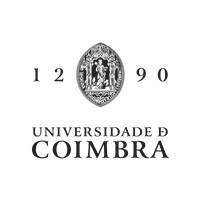雅思写作答题技巧大揭秘
Editor:Mark| Time:2025-02-22在雅思考试中,写作部分常常让考生们感到头疼。如何在有限的时间内,清晰、准确且有逻辑地表达自己的观点,并获得高分呢?掌握一些实用的答题技巧至关重要。
一、深入剖析题目
拿到雅思写作题目后,首先要做的就是仔细研读,确保自己完全理解题目要求。这包括明确题目中的关键词、限定词以及核心话题。例如,题目可能会问“Some people think that the government should spend more money on public services rather than on arts such as music and painting. To what extent do you agree or disagree?”这里的关键词就是“government”“public services”“arts”,限定词是“spend more money on... rather than...”,核心话题是关于政府资金分配的讨论。
考生需要明确题目是要求讨论同意与否,还是双边讨论等不同的题型。如果理解错误,写得再好也可能偏离主题,导致分数大打折扣。
二、巧妙构思文章结构
一个清晰合理的文章结构能让你的论述更有条理。通常,雅思写作可以采用总分总的结构。
开头部分,要简洁明了地引出话题,并表明自己的立场。比如针对上述题目,可以这样开头:“In modern society, the issue of government funding allocation has sparked a heated debate. While some people advocate for more investment in public services, I firmly believe that the arts also deserve significant financial support.”
中间论述部分,一般分为 2 - 3 个段落,每个段落阐述一个支持自己观点的理由。以支持艺术为例,可以从艺术对文化传承的重要性来论述:“Art serves as a crucial carrier of cultural heritage. Through music, painting, and other art forms, our ancestors' wisdom and values are passed down from generation to generation. Without sufficient government funding, many precious artworks and traditional art skills may be lost forever.” 接着可以从艺术对个人素养提升的角度展开:“Engaging with the arts can greatly enhance individuals' qualities. It broadens our horizons, cultivates our creativity and aesthetic sense, making us more well-rounded individuals.”
结尾部分,要总结自己的观点,再次强调立场的合理性。可以这样结尾:“In conclusion, although public services are essential, the arts play an equally important role in society. The government should strike a balance and allocate appropriate funds to both areas to ensure the healthy development of the country and the well-being of its people.”
三、丰富论证方法
为了让文章更具说服力,需要运用多种论证方法。
举例论证是很常用的一种方法。比如在论述科技发展对生活的影响时,可以举例:“The development of smartphones has revolutionized the way we live. For example, we can now easily communicate with people around the world, access a vast amount of information, and even conduct business transactions through various apps on our phones.”
对比论证也能增强观点的鲜明性。例如在讨论传统教育和现代教育时:“Traditional education focuses more on rote learning, while modern education emphasizes critical thinking and practical skills. By comparing the two, we can see that modern education better prepares students for the challenges of the contemporary world.”
因果论证则有助于阐述事情的逻辑关系。比如在分析环境污染的原因时:“The excessive use of fossil fuels is one of the main causes of environmental pollution. When burned, these fuels release large amounts of harmful gases into the atmosphere, leading to air pollution and global warming.”
四、注意语言表达
雅思写作对语言的准确性和丰富性有较高要求。
词汇方面,要尽量避免重复使用相同的词汇。可以使用同义词替换,比如“good”可以用“excellent”“superb”“outstanding”等替换。同时,要学会运用一些高级词汇和短语来提升文章档次,如“in the long run”(从长远来看)、“a variety of”(各种各样的)等。
语法上,要确保句子结构正确,避免出现明显的语法错误。可以多运用一些复杂句式,如定语从句、状语从句等,来展示自己的语言能力。例如:“The book, which I bought last week, is very interesting.”
此外,要注意句子之间的衔接,使用恰当的连接词和过渡语,如“however”“therefore”“in addition”等,使文章逻辑更连贯。
五、认真检查与修改
完成写作后,一定要留出时间进行检查和修改。检查语法错误、拼写错误以及标点符号的使用是否正确。同时,看看文章的逻辑是否清晰,论述是否充分。如果发现有表述不清晰或不合理的地方,及时进行修改和完善。
总之,掌握雅思写作答题技巧需要不断地练习和总结。通过深入理解题目、精心构思结构、丰富论证方法、提升语言表达以及认真检查修改,考生们能够在雅思写作中取得更好的成绩,实现自己的留学梦想或职业发展目标。





